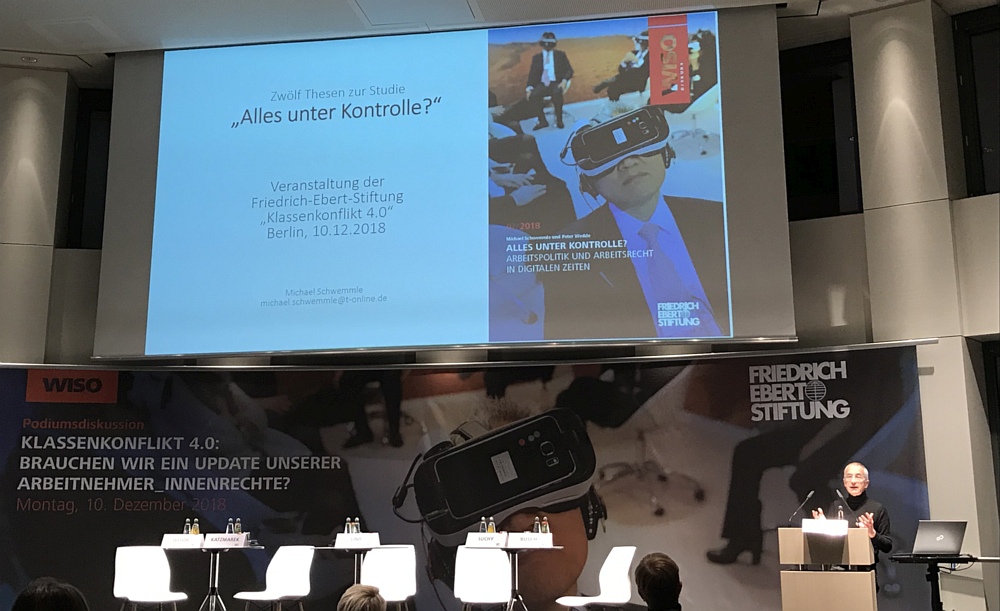How is work changing as a result of the digital transformation? What does this development mean for the balance of power on the labor market? These questions were explored at an event organised by the Friedrich-Ebert-Stiftung in Berlin on 10 December.
Technology-induced effects on the labor market are nothing new. The hoist revolutionised the construction industry, the steam engine ushered in the industrial age, the assembly line made mass production possible. Each of these and many other innovations led to profound changes in the labor market, job profiles and working conditions.
Digitalisation is also transforming the labour market. It is creating new opportunities, such as more flexible forms of work that are independent of time and place. However, it also brings challenges, for example when it comes to the balance of power and dependencies between employees and employers.
How is work changing?
The digital transformation of work means “changes in the space-time structure” and “changes in the power structure of the employment sphere”, said sociologist Michael Schwemmle in this context. Together with Prof. Peter Wedde, he presented the results of the study Everything under control? which takes a critical look at the consequences of digitalisation for work and identifies three regressive tendencies. According to the report, the digital transformation has the potential to have a “de-securing, de-collectivising and disempowering” effect on employees. Labor law anchor points are coming under pressure. Burdens are increasing and becoming more entrenched due to the required flexibility. In contrast, the positive aspects of the digitalisation of the labour market (home office, teleworking) have not yet been implemented across the board. Ultimately, it is feared that the balance of power in the labor market could shift towards employers.
Solution approaches
The discussion with representatives from politics and associations focused on solutions for this disruptive potential. The result: The question of how digitalisation can be put to useful use has not yet been conclusively answered for the labour market. It is true that new forms of work and relief for employees have long been indicated. At the same time, however, precarious employment relationships are emerging and work is becoming geographically fragmented, which is also weakening the level of trade union organisation. Solutions to this must be sought above all in the area of training and further education. Qualification and facilitation are crucial to consolidating digitalisation as useful progress. Representatives from the audience called for a “right to further training”. Others pointed out that employees should also be held accountable. Intrinsic motivation to take advantage of further training opportunities is just as important as the creation of these opportunities themselves.
Conclusion
Digitalisation, like all progress, can be helpful for everyone. At present, it is not yet helpful in every case. In order to reduce fears and take advantage of the opportunities, it is crucial to emphasise the positive aspects of digital transformation and develop a vision of a digital society in which work becomes more pleasant for everyone with the help of digital transformation.
The positive design and use of digitalisation not only leads to efficiency gains, but also significantly improves the quality of work and thus the quality of life.


